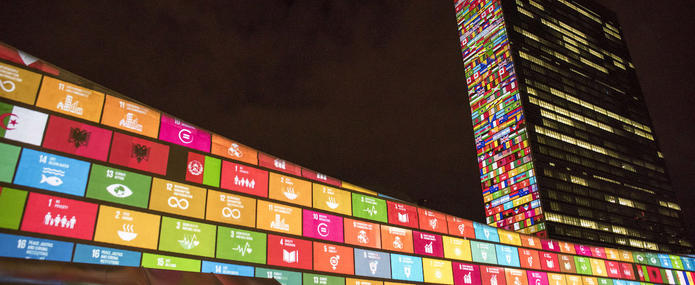The Agenda 2030 for Sustainable Development, implemented on September 25, 2015, sets 17 Sustainable Development Goals (SDGs), broken down into 169 targets, to meet the common challenges of the world's countries based on the three dimensions of sustainable development: environmental, social and economic. This agenda was then presented as a paradigm shift, a transformative project and a global roadmap for all stakeholders.
Four years later, the UN Secretary General's progress report and the Global Sustainable Development Report warn of the delay in achieving the SDGs. At the first SDG Summit at the level of Heads of State held at the end of September within the framework of the United Nations General Assembly, calls for accelerated action were multiplied, but the summit did not have the concrete expected results.
What is the outcome of the first four years of implementation of the SDGs? How to assess the ownership and policy implementation of this agenda by countries? What about the other stakeholders? Do the SDGs change the practices of international organisations, development banks, NGOs or companies? How to accelerate to achieve the SDGs by 2030?
At this session of the Seminar on Sustainable Development and Environmental Economics, Elisabeth Hege (IDDRI) will present a new IDDRI study reviewing the implementation process of the SDGs to date. This critical panorama will then be discussed with Nicolas Blanc, Director of the Strategy, Foresight and Institutional Relations Department at the French Development Agency (AFD), and Guillaume Cohen, analyst and statistician at the Organisation for Economic Co-operation and Development (OECD), who will present their own assessment of the SDGs. The discussion will then examine some emerging innovative practices and explore different avenues for accelerating action.





